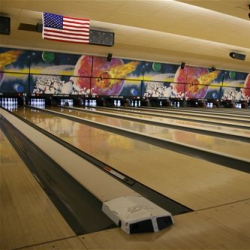Two businesses in Mundelein were fined $25,000 by the Illinois Gaming Board, because they allowed underage gamblers to play legal games in their premises. Each business received 7 charges that they allowed underage patrons to play on their gaming machines, then did not self-report the illegal activity to the gaming board. The gaming took place during sting operations on the businesses.
The four-man gaming board voted the fines on Fair Haven Lanes and Gregg’s Olde Town in Mundelein. Both have legal gaming machines, but those under 21 years old cannot play at the them. Real money gambling cannot be encouraged in underage players.
Board Member Is “Speechless”
Lee Gould, a member of the Illinois Gaming Board, said, “I’m speechless with regard to this violation. I don’t understand how that can be an issue. I think it’s a black mark on all of us to know that people under 21 are gambling when the (law) explicitly says that can’t happen.”
In the meeting, it was revealed that two other local businesses failed to stop underage gambling in similar sting operations. It is likely that a future meeting will be held to assess fines on each of those businesses, who have not been named at present.
$5,000 Fines for Other Businesses
Several other local businesses have been fined $5,000 for similar violations, though their conduct was considered less egregious than Gregg’s Old Town and Fair Haven Lanes.
Besides the same charges as above (allowing underage gambling, not self-reporting), the businesses given the $5,000 fines were charged with “not properly training employee” and “not self reporting the tickets issued by Mundelein police.”
Given the fact business were assessed lesser fines, it can be presumed they had a smaller number of violations. Also, the citation for failure to report tickets indicates that at least some businesses called the local police and stopped the gambling, though they failed to report their actions to state officials.
Riverboat Gambling Act Violations
In assessing the fines, the bars were told they were subject to the same statutes as casinos would be, under the Riverboat Gambling Act. Gene O’Shea, a spokesman for the Illinois Gaming Board, said that the bars had three courses of action. One, they could pay the fine within 21 days. Two, they could submit rebuttals to the charges. Three, they could agree to give up their gaming license.
Paul Prezio, who also speaks for the gaming board, said the latest fines are the first time business have received fines under the Illinois Video Gaming Act. The announcement of the fines suggests that bars across the state should realize this might not be the last time.
Police Chief Describes Sting Operations
Eric Guenther, the Mundelein Police Chief, described how the stings took place. On December 8, 2014, the police sent teenagers into the Gregg’s Olde Town and Fair Haven Lanes, to see if they enforced the law. The teens were told not to conceal their identity, but to otherwise be non-chalant.
Chief Guenther said, “There are rules for how we’re supposed to do these inspections. The kids can’t disguise themselves; they have to dress how they normally do. If approached, they have to present their real state ID or tell the truth about their age. A violation occurs if the kids are allowed to sit there for five minutes.”
After describing how the sting operation took place, he added, “When you think about it, five minutes is actually a long time to go unnoticed. You can do a lot of gambling in five minutes, too.”
Illinois Gaming Machines
Gaming machines are a controversial subject in Illinois. Local business owners argue that the gaming machines help Mom-and-Pop stores stay in business, while religious groups and problem gambling counselors say they wreck families in the smaller communities across the states. In some counties, all but one city has legalized such gambling. Those municipalities which take a principled stand against gambling see their residents drive to the next community to gamble, while their own businesses suffer in a one-sided economic environment.
Thus, mayors and city councils across the state face tough decisions, while trying to balance between supporting the local business owners and still protecting the population of their cities and towns. When gambling is instituted in a city, the store owners must uphold the law or face stiff fines. Allowing underage kids to gamble in their businesses is a black eye for the industry. All other bar owners in the state need to take notice.

